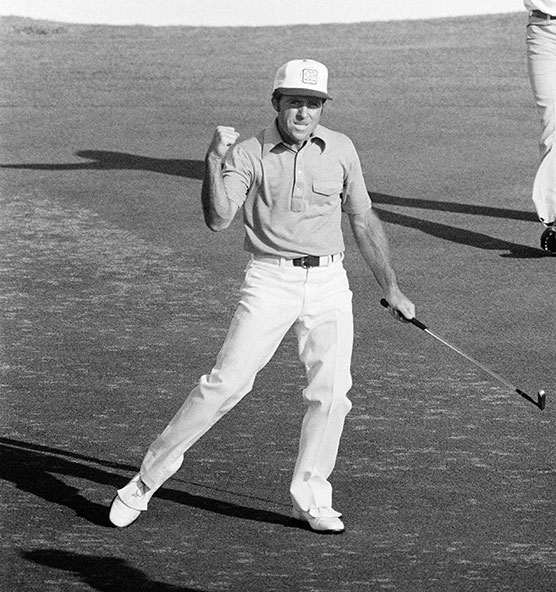I have lost count of the number of times I’ve been asked what it takes to be great at our game.
The easiest response is to trot out the usual suspects from the inventory of observable qualities, starting with hitting it long, and having a great short game. Distilled down to its lowest common denominators, golf is an easily understood equation.
But if I were pressed, and needed to be more expansive, I’d point out that in an era where technology increasingly levels the field at the elite level, the best need to possess one or more exceptional qualities to stand out from the pack.
These are largely psychological, or in some instances, personality traits, but each bears real significance with regard to golfing outcomes.
On that list I would put selfishness. The connotations of the word are less than flattering, but the simple truth is that in order to achieve one’s potential and to clamber up the golf rankings, a professional golfer needs to make themselves the No.1 priority.
You need to allocate most of your free time to yourself, and use it productively in developing your skills. You need to be comfortable in your own company, and to use those lonely hours on the range fortifying yourself for the realities of the mercenary life you aspire to.
When push comes to shove, it’s only you who can get the job done, and the best at doing this under pressure have a self reliance borne out of a degree of cultivated egocentricity.
Resilience is an overlooked and underestimated quality in elite athletes. The ability to overcome adversity and transcend the many challenges that a life in pro golf may throw at you is essential. These may include factors such as financial challenges, travel fatigue, form slumps, illness and homesickness, all issues that can wear away at your resolve. For all but the most prodigiously talented, professional golf will throw an endless number of roadblocks in your way. Having the minerals to overcome them, and still be able to perform at your peak will mean you have already beaten half the field in any given week.

Gary Player won nine Major championships in his career, and is generally regarded as one of the greatest golfers of all time. A phenomenal work ethic aside, he was renowned for his unstinting positivity. Legend has it that when his peers were bemoaning the speed and condition of the greens at a tournament, he chimed in with how much he loved slow greens, and of how he always putted great when they were bumpy.
Funnily enough, he also held the same opinion about fast greens, and of windy conditions, and for that matter, playing in the rain. He prioritised positive thought, and never allowed external, uncontrollable factors to interfere with his mindset. It’s a trait common to most great golfers, and one that anyone with aspirations to greatness will need on their climb to the top.
To round things off, I’ll throw in selective memory as a factor. Over the course of time, it’s possible, should you allow it, to build up a closet full of dark thoughts or psychological scar tissue relating to poor shots and mental errors made in the heat of battle.
These mistakes have a habit of creeping back into the mind when it is under duress. Flashbacks to missed three footers and wedges that didn’t clear hazards only serve to detract from your ability to improve.
Finding a way to block those out and to focus only on the shot in front of you will go a long way towards determining just how far you progress in your quest for golfing excellence.

